Foods to Avoid if You Take These Common Medications
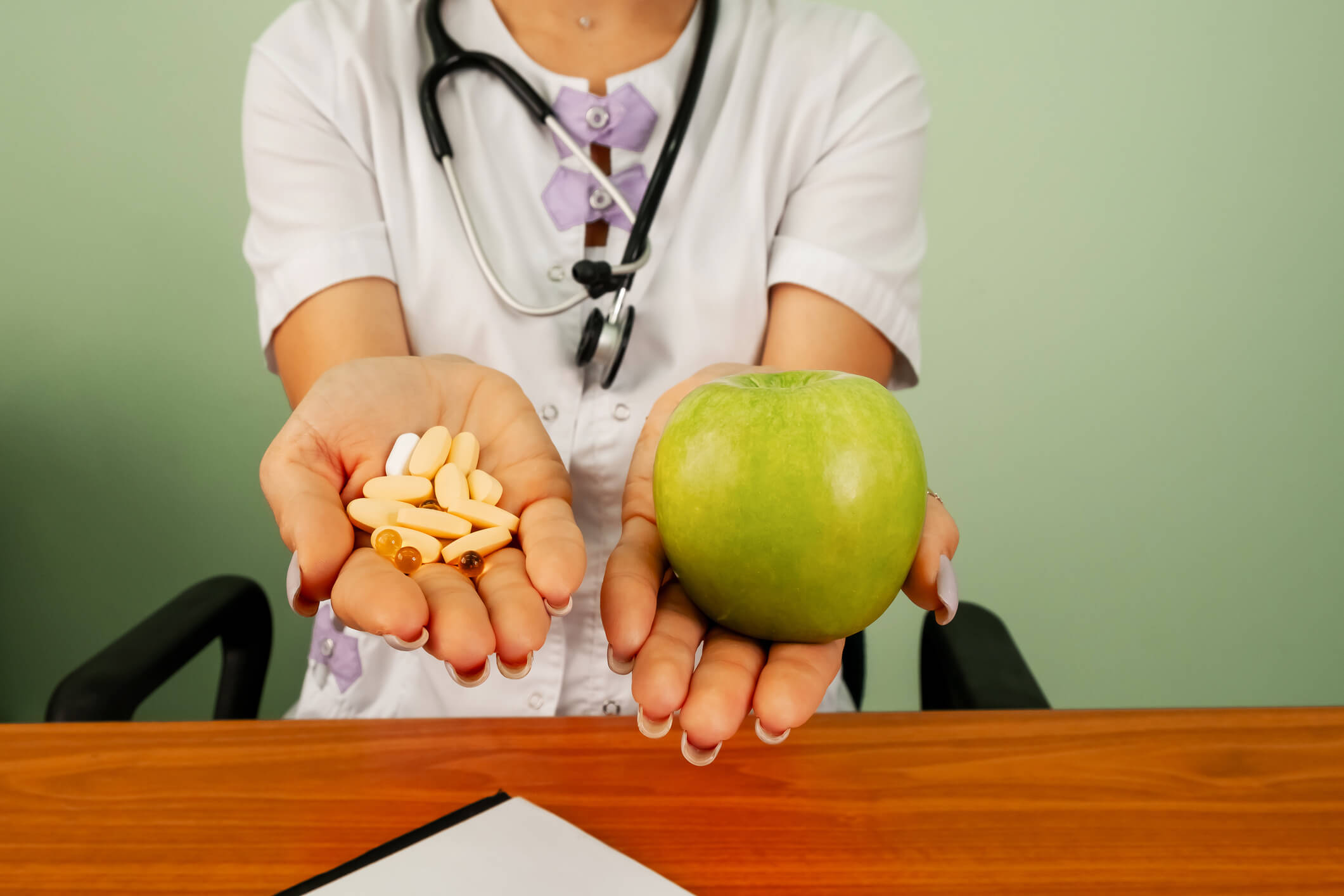
When it comes to medication, it's not only about taking the correct dose at the right time. What we eat can also impact how prescription drugs work. Certain foods can interact with the active ingredients of numerous common medications, reducing their effectiveness or, in some cases, leading to harm or injury.
Whether you are taking prescription or over-the-counter medications, it's crucial to know how food can influence their performance. To help you navigate these potential pitfalls, we've compiled some examples of common food-drug interactions that you should be aware of.
Please be aware that this article does not cover all potential interactions between food and drugs. If you have any doubts about the compatibility of your medications with your diet, it is recommended to consult your prescribing physician at the earliest opportunity.
Advance ER offers emergency care in Dallas 24/7. If you are dealing with an emergency, call (214) 494-8222. We can see you immediately.
How Do Medications & Food Interact?
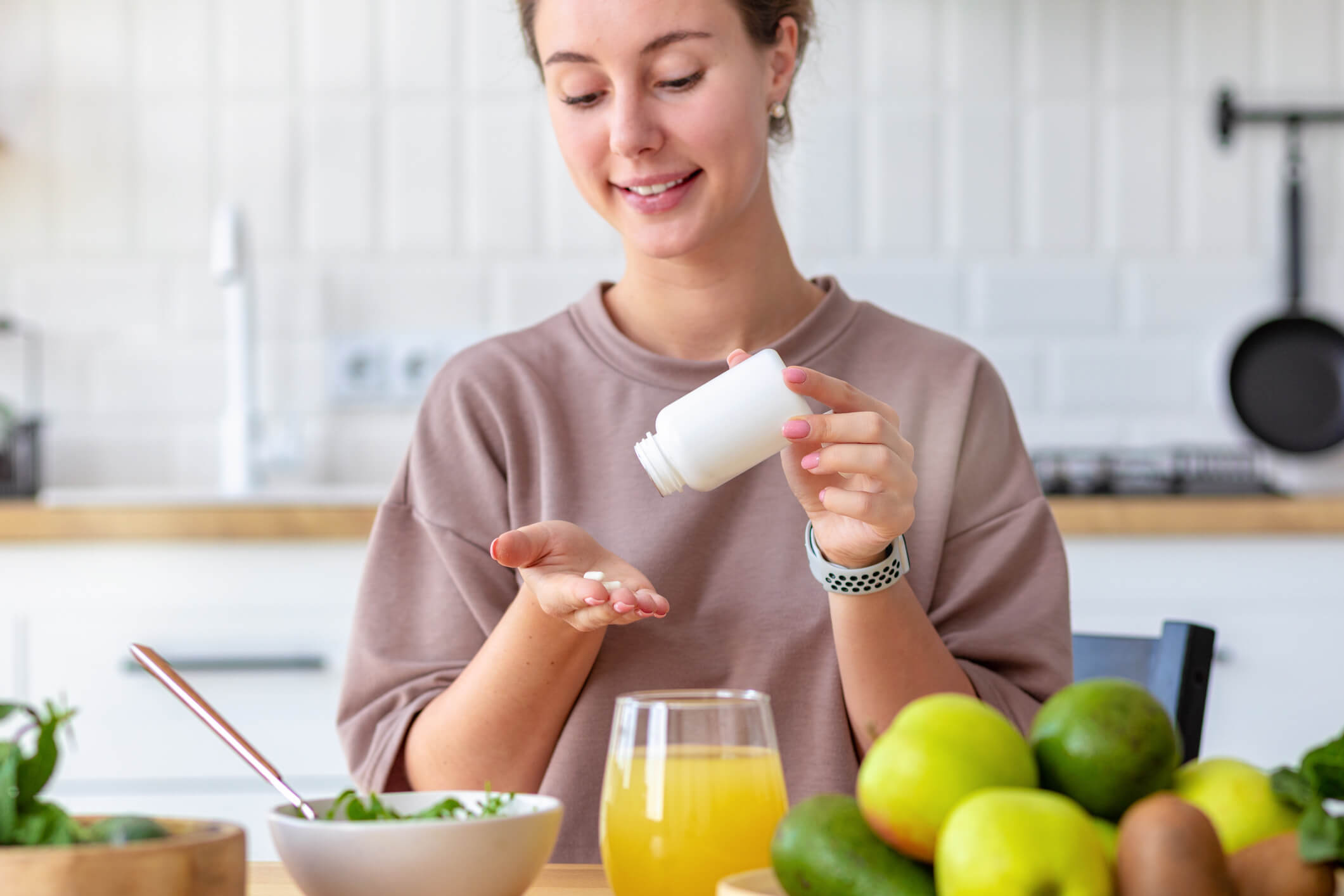
Medications and food can interact in several ways. Some foods can interfere with the absorption of drugs, reducing their effectiveness. For instance, calcium-rich foods like milk can bind with certain medications in the stomach and lessen their absorption into the bloodstream. On the other hand, certain foods can increase the absorption of drugs, leading to higher drug levels in the body than intended.
Foods can also interact with medication metabolism. For example, grapefruit contains compounds that inhibit the enzymes in the liver that break down various medications, potentially resulting in an overdose. Understanding these interactions is crucial for optimal medication management.
Food & Medication Interactions to Avoid
Dairy Products & Antibiotics
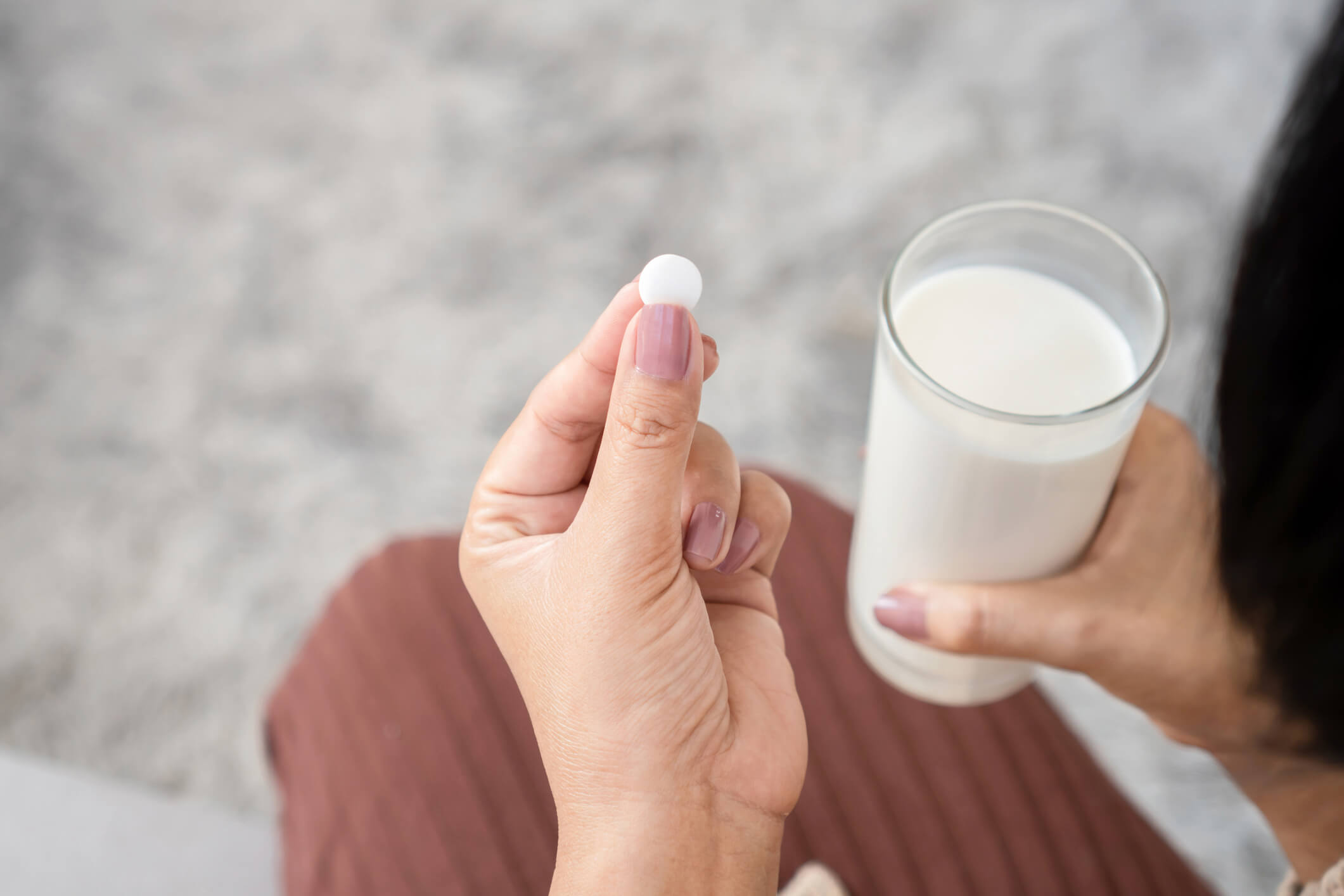
Certain antibiotics, such as tetracycline and ciprofloxacin, interact negatively with dairy products. The calcium in dairy binds with the antibiotics, reducing their absorption and effectiveness. It's best to avoid consuming dairy for several hours before and after taking these medications.
Food Rich in Vitamin K & Warfarin
Warfarin, a common blood thinner, can be less effective if consumed with foods rich in Vitamin K, like spinach, kale, and broccoli. These foods can decrease the effectiveness of Warfarin and increase the risk of blood clot formation.
Grapefruit & Statins
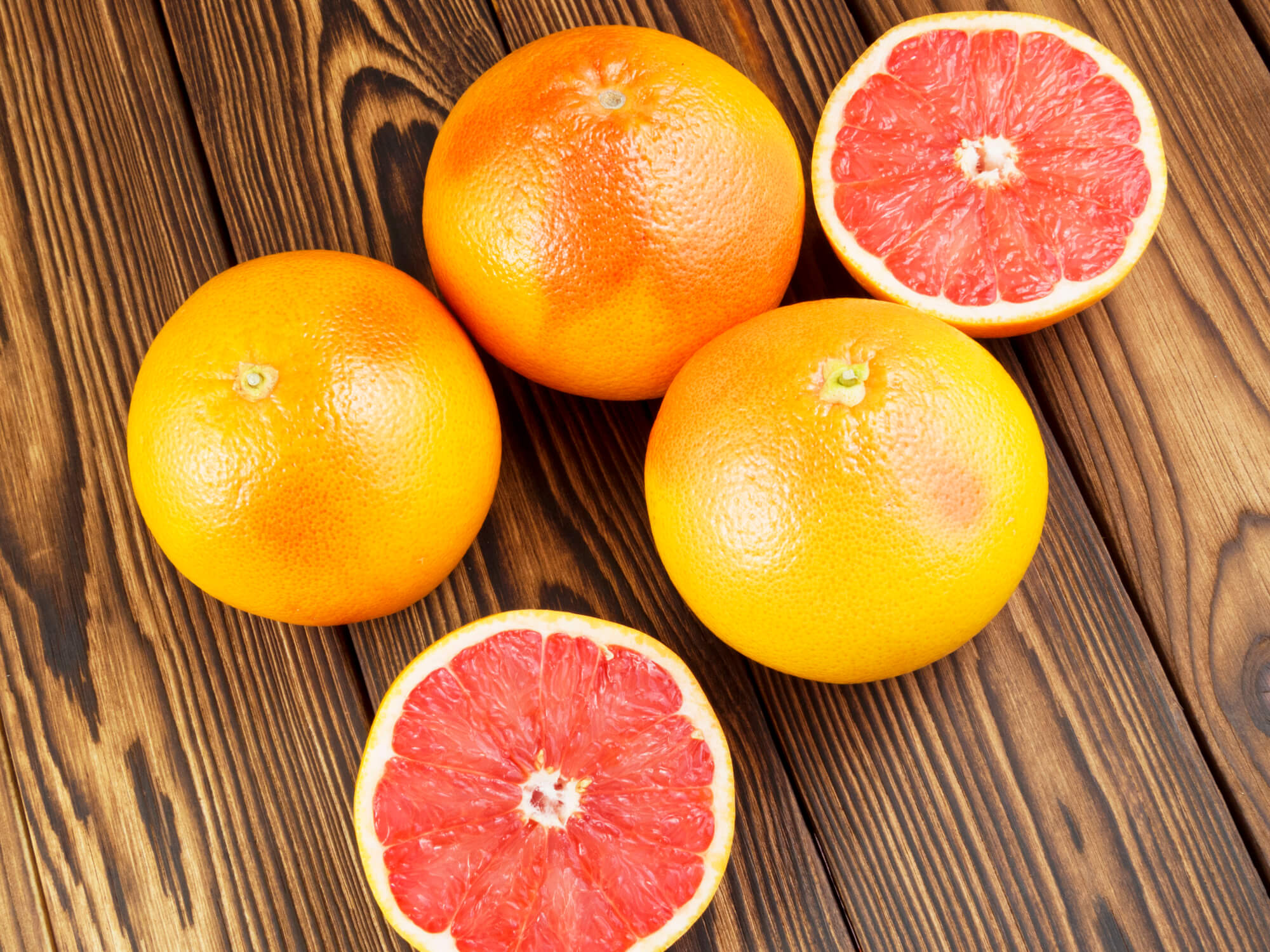
Grapefruit and grapefruit juice can interact with statins, a type of cholesterol-lowering drug. Compounds in grapefruit interfere with the enzymes the liver uses to break down statins, causing increased levels of medication in the bloodstream and potentially leading to serious side effects such as muscle pain or kidney damage.
Alcohol & Painkillers
When alcohol is combined with painkillers, it intensifies the sedative properties of the medication, resulting in increased drowsiness. This combination can also lead to slower breathing, which poses a significant risk of a potentially fatal overdose.
Bananas & ACE Inhibitors
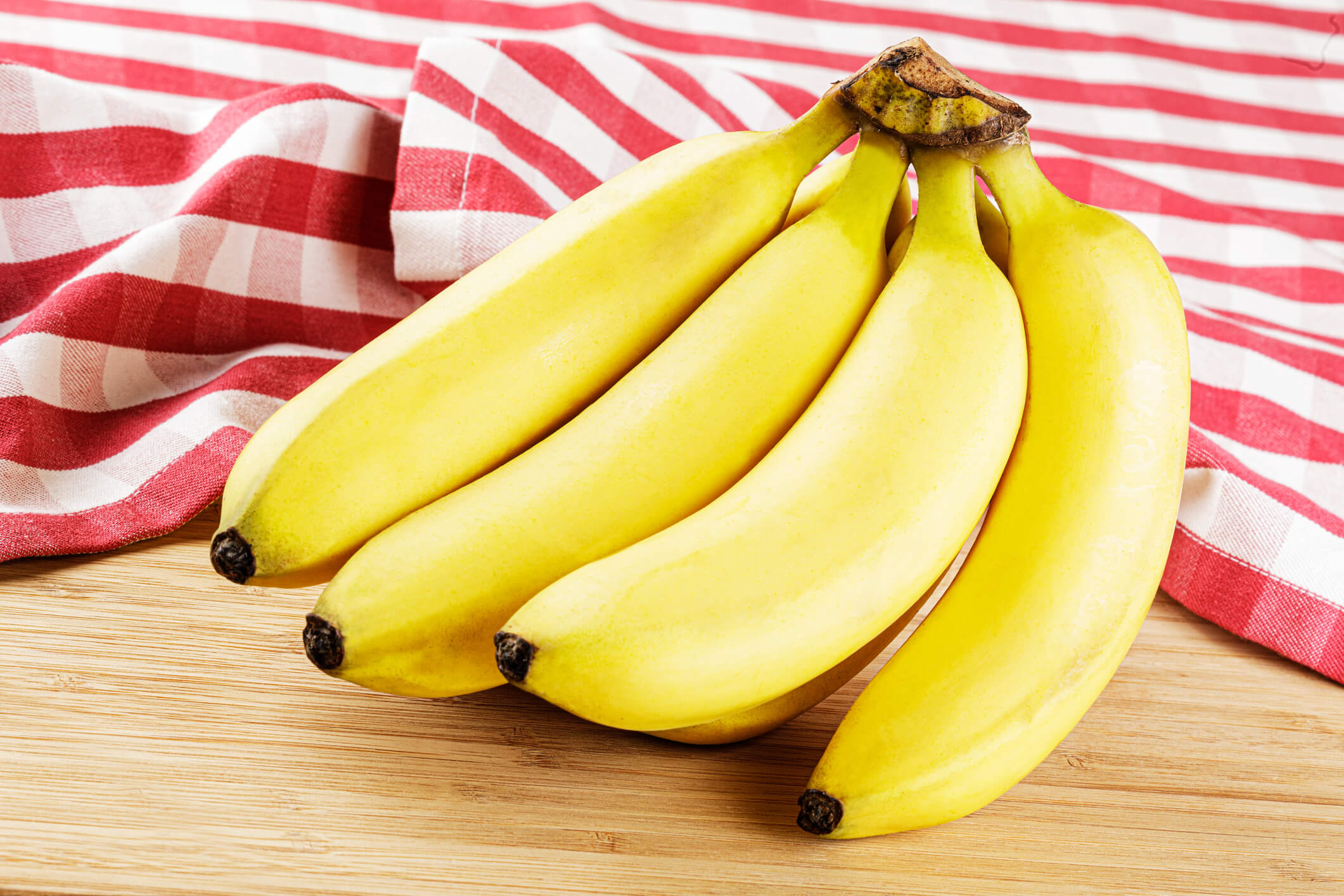
Potassium-rich foods like bananas, oranges, and leafy greens can cause problems when taken with ACE inhibitors, which are used to lower blood pressure. These drugs can increase potassium levels in the body, and consuming potassium-rich foods can cause a dangerous buildup of this mineral.
Fiber & Medications
High-fiber foods and supplements can slow the absorption of many medications, including antidepressants, diabetes medications, and certain heart medications. This interaction can lead to lower drug levels in the body and reduced effectiveness.
Licorice & Blood Pressure Medications
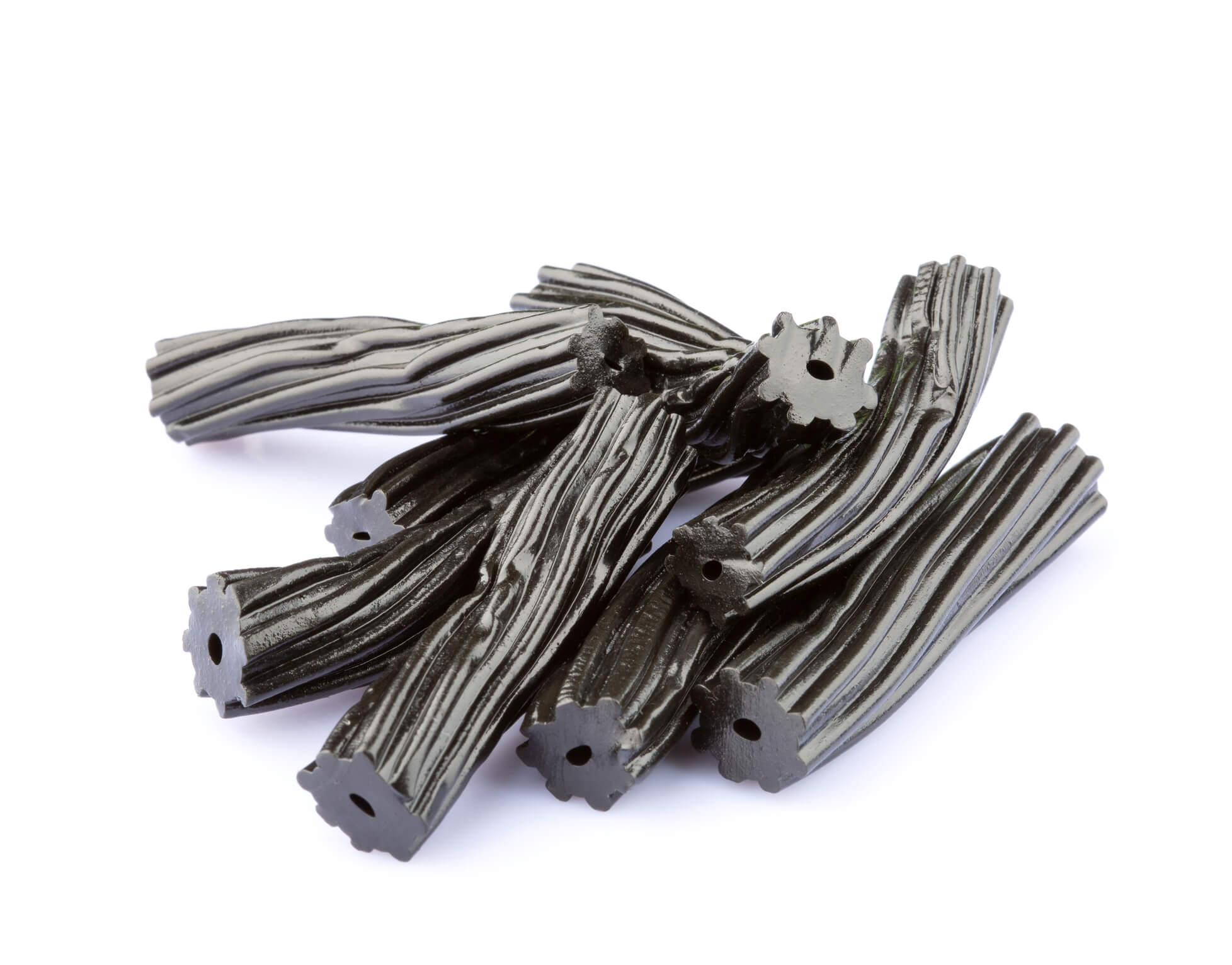
Glycyrrhizin, a compound found in licorice, can interfere with blood pressure medications, making them less effective. Combining these may also lead to an increase in blood pressure or cause irregular heart rhythm.
Protein-rich Foods & Levodopa
People taking Levodopa for Parkinson's disease should avoid protein-rich foods close to their medication timing. Protein can interfere with the absorption of this drug, reducing its effectiveness.
Caffeine & Bronchodilators
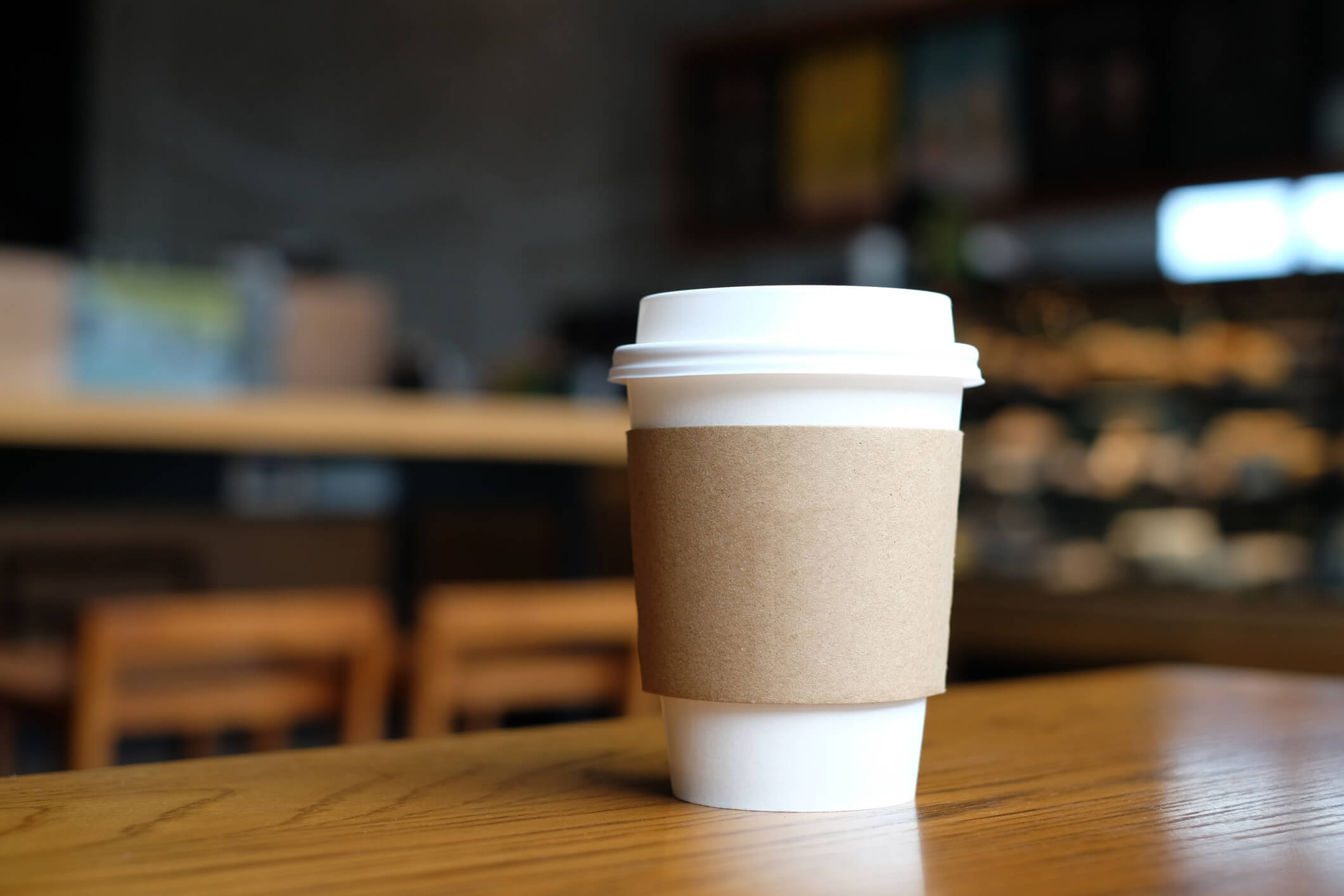
Bronchodilators are used to treat conditions like asthma. But when mixed with caffeine, these drugs can cause excessively increased heart rates and palpitations.
Tyramine-rich Foods & Monoamine Oxidase Inhibitors (MAOIs)
MAOIs are antidepressants that can have potentially dangerous interactions with foods high in tyramine, like aged cheeses, cured meats, and fermented foods. This can cause a spike in blood pressure, leading to a hypertensive crisis.
Navigating Your Nutrition with Medication
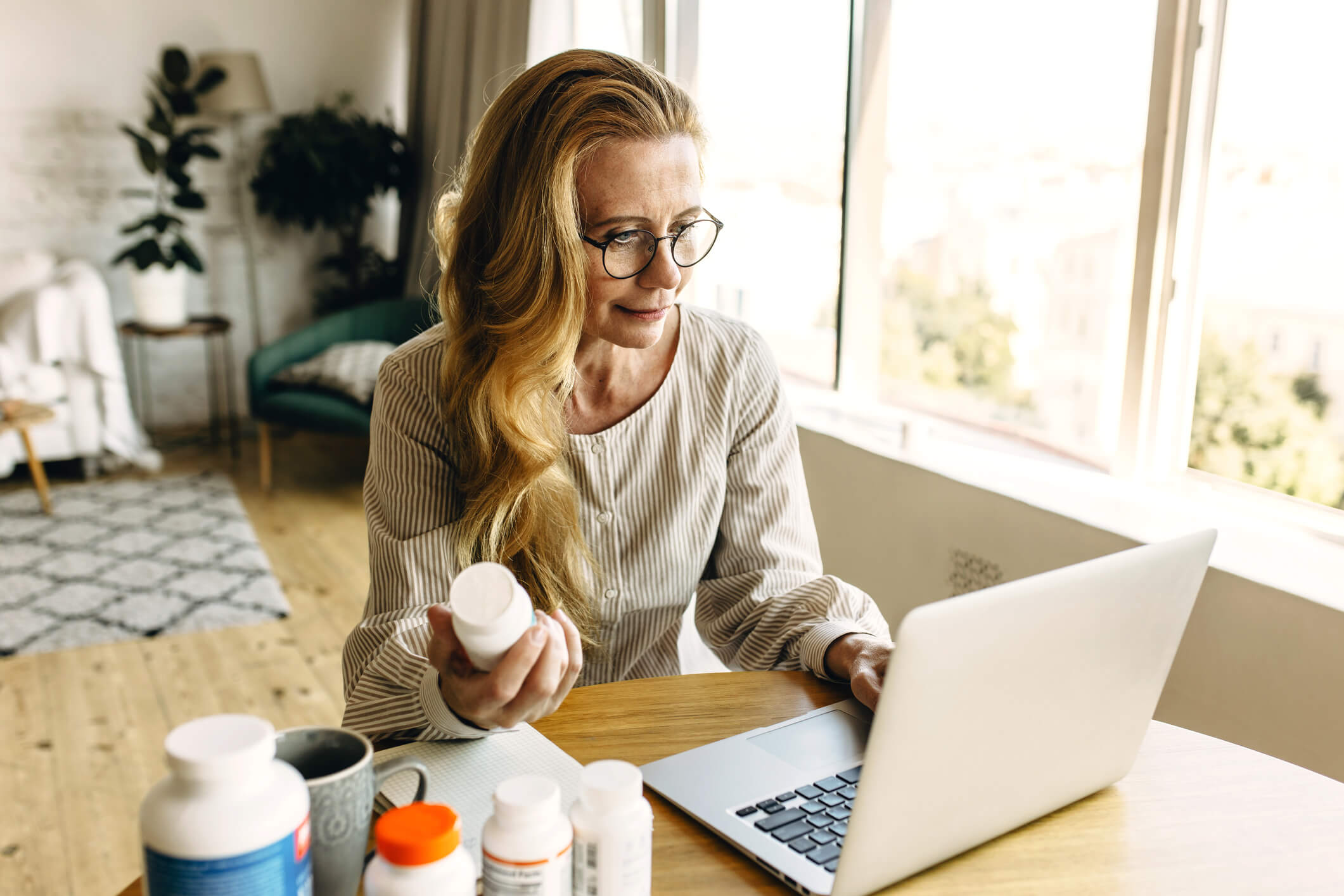
We hope this guide has illuminated the surprising ways in which what we eat can impact the efficacy and safety of our medications. While it may seem daunting, the key takeaway is to be mindful and proactive. Always consult your healthcare provider about possible food and drug interactions when starting a new medication.
Information is your best defense against potential drug-food interactions. By understanding and avoiding these interactions, you can help ensure your medications work as effectively as possible while minimizing potential side effects.
Remember, if you ever find yourself in need of immediate care in Dallas, Advance ER is here to serve you. We offer 24/7 emergency services with no waiting in line. You can rely on our dedicated team to provide prompt, high-quality medical attention when you need it most.
For more information, contact Advance ER online or call (214) 494-8222.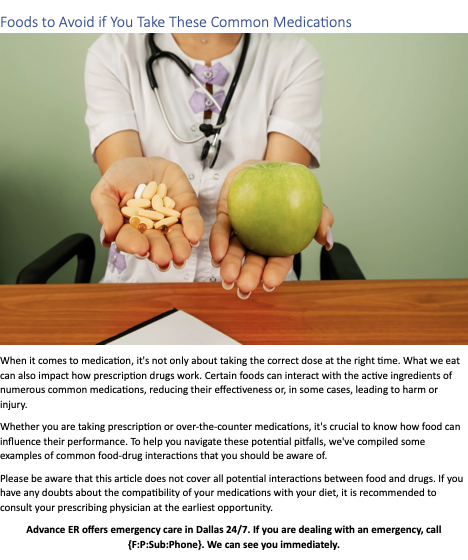


.jpg)


